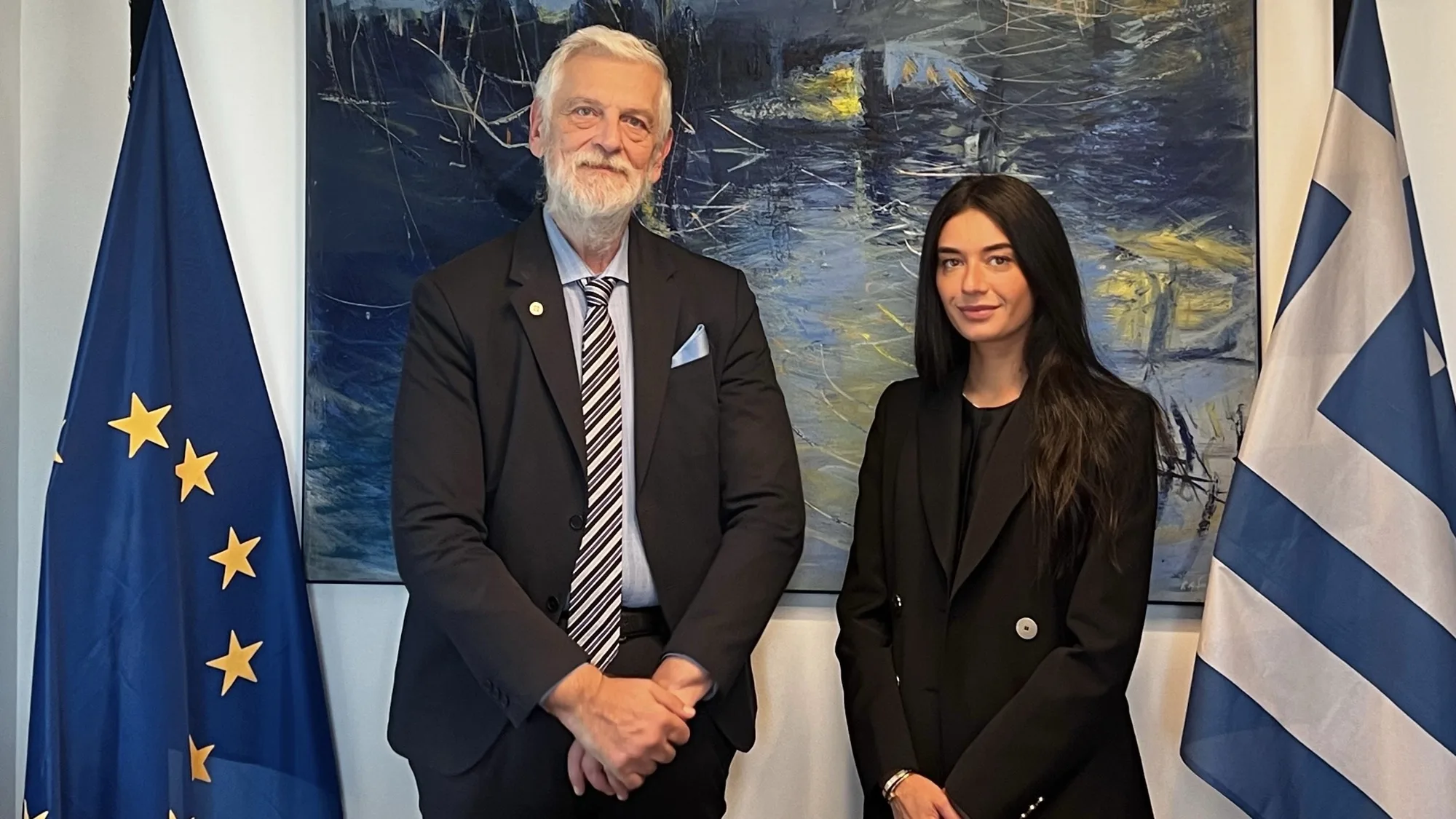Greece’s Deputy Foreign Minister for Greeks Abroad, Ioannis Loverdos, met in Athens with Publisher of The Greek Herald, Dimitra Skalkos, ahead of his proposed visit to Australia later this year.
During the meeting, Mr Loverdos reaffirmed the Greek government’s commitment to strengthening ties with diaspora communities, while acknowledging the key challenges faced by Greek Australians. He pointed in particular to long delays in consular services and the need for closer cooperation with Greek media abroad to ensure that communities remain informed.
During the discussion, Ms Skalkos outlined the community’s priorities, including the urgent need to progress the long-awaited Double Taxation Agreement between Australia and Greece.
“Everyone’s waiting for this to move forward because there’s so much missed opportunity,” Ms Skalkos said, highlighting how uncertainty affects both diaspora families and business links between the two countries.
Another major focus was consular services, with Ms Skalkos noting widespread frustration over delays in Sydney and Melbourne, as well as the limitations faced by honorary consulates such as in Queensland.
“There are tens of thousands of Greek Australians in Queensland, but the honorary consulate has restricted powers. That leaves many people without adequate access to essential services,” she said.
As previously reported by The Greek Herald, Queensland’s honorary consulate represents up to 40,000 people but lacks authority to process key civil registrations, creating significant difficulties for local communities.
Deputy Minister Loverdos acknowledged these concerns, noting the government had received many similar complaints. He said temporary contractors had been considered to help clear backlogs, but more systematic support would be needed.
Both sides also spoke about the importance of effective communication with diaspora communities. Ms Skalkos stressed that crucial information – such as deadlines for property registrations in Greece – often failed to reach the diaspora.
“Unless people were reading Greek outlets, they weren’t informed,” she said. “The diaspora media, namely The Greek Herald, stepped in to fill the gap, but that shouldn’t be our job alone. It’s the government’s responsibility to ensure communities abroad are kept up to date.”
The Greek Herald has previously reported on the distress caused by last-minute Ktimatologio deadlines, where inadequate communication left many scrambling to meet obligations.
Mr Loverdos agreed, noting: “There are many media of the Greek community which we should have more close ties with, and inform them more than we do.”
He emphasised that strengthening cooperation with Greek Australian press is central to Greece’s public diplomacy strategy.
Education and language support also featured in the talks. Ms Skalkos welcomed the recent $10,000 funding for Greek Studies at Charles Darwin University but stressed that continuity is critical across all levels, from community language schools to universities.
Mr Loverdos responded by asking whether more teachers from Greece might be needed to strengthen programs and underlined the government’s interest in facilitating exchanges and study tours for younger generations. He noted that maintaining language across different stages of schooling is “of crucial importance” and tied this directly to Greece’s broader efforts to sustain ties with diaspora youth.
The reopening of the Greek National Tourism Organisation’s (GNTO) Melbourne office was also raised, with Ms Skalkos pointing to the significant delays as a concern for the community.
Mr Loverdos acknowledged the issue, noting that while it falls under another ministry, it still has significant implications for Greece’s public diplomacy and presence abroad. He described it as part of the “heart of our public diplomacy program,” stressing the need for consistent communication with diaspora communities about when such offices will be operational and what benefits they will bring.
The meeting, held in Athens ahead of Mr Loverdos’ planned tour of Australia, New Zealand and Tasmania later this year, concluded on a constructive note, with both parties expressing their commitment to continued dialogue and cooperation. Mr Loverdos confirmed that these issues will remain on the agenda during his upcoming visit.
